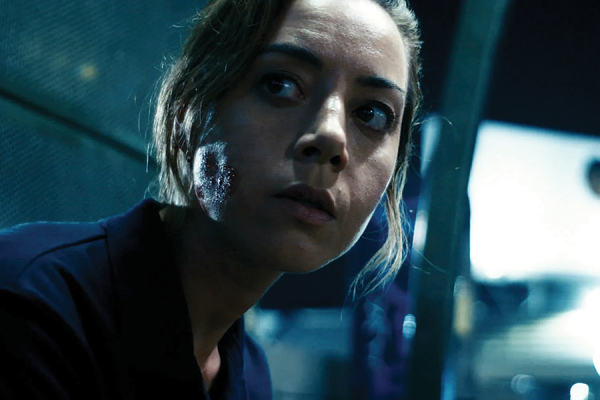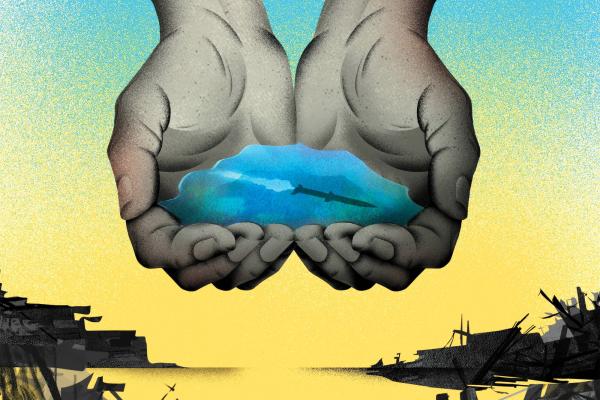EMILY (AUBREY PLAZA) is caught in a vicious catch-22. She’s in deep student debt, but a criminal infraction keeps her from getting a job to pay down her balance. Emily’s stuck working catering gigs, and what little money she can set aside goes to her loan interest, practically ensuring she’ll never be able to get her head above water.
When a co-worker offers her a chance to make some extra cash, Emily jumps at the opportunity. It may be highly illegal, but what other choice does she have?
Writer/director John Patton Ford’s Emily the Criminal is a millennial version of classic gangster noir, with Plaza’s Emily drawn deeper into a criminal underworld where fast payout overrules ethics. Ford’s film never glamorizes Emily’s experiences, instead showing us a desperate person fed up with a world that gives her virtually no other choice but to break the law to survive.
Ford’s film, anchored by Plaza’s determined performance, considers a deeply broken system that pushes people with honest goals toward crimes of necessity. Emily’s partner, Youcef (Theo Rossi), who runs the credit card scam she’s part of, is a Lebanese immigrant using his ill-gotten gains to buy his mother an apartment. Her co-worker Javier (Bernardo Badillo) wants to keep a roof over his kid’s head. Emily wants to be free of debt so she can reclaim her life. For the three of them, caught in endless cycles of poverty, predatory lenders, and an unsympathetic job market, the quickest way out (illegal as it may be) is also the only way out. Emily’s attempts to get a legitimate job also suggest that capitalism isn’t much better than the criminal world. The film begins with a hiring manager lying to Emily about a background check, only to pull the rug out from under her. As a contractor with the catering company, Emily has no benefits, no union, and a boss who laughs off the concept of workers’ rights. A promising interview at a marketing firm turns out to be for an unpaid position. When Emily calls out that injustice, the potential employer (Gina Gershon) calls her spoiled.
In a recent essay for Vox, culture writer Alissa Wilkinson notes that Emily the Criminal fits a mold of Depression-era films such as Scarface or Little Caesar that depicted violence and criminal activity but whose characters were products of the system they exploited. Emily’s journey down that same rabbit hole is a cautionary tale — things don’t end well — but it’s also an indictment of an economy that necessitates the exploitation of others. Whether it’s stolen goods, ballooning loans, or payment “in experience,” Ford’s film suggests it’s all a racket. The cycle can only be broken if we’re willing to take a long, hard look at the stories it produces and respond with drastic change.

Got something to say about what you're reading? We value your feedback!







